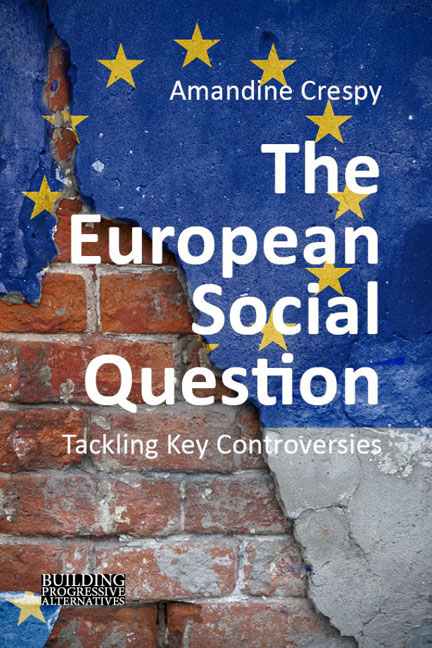Book contents
- Frontmatter
- Contents
- Acknowledgements
- Abbreviations and acronyms
- Dedication
- Introduction: “Social Europe” – irrelevant, catching up or dangerous?
- 1 What is the European social question?
- 2 Is the EU a key player in addressing social issues?
- 3 Are socially minded actors too weak in EU policy-making?
- 4 Is European social regulation a thing of the past?
- 5 Does liberalization undermine social cohesion?
- 6 Does the European social dialogue really protect European workers?
- 7 Does soft coordination support welfare states?
- 8 Is redistribution unconditional?
- 9 Is the EU fit for the social challenges of the twenty-first century?
- Conclusion: from the social question to the democratic question
- Index of CJEU judgments
- References
- Index
2 - Is the EU a key player in addressing social issues?
Published online by Cambridge University Press: 20 December 2023
- Frontmatter
- Contents
- Acknowledgements
- Abbreviations and acronyms
- Dedication
- Introduction: “Social Europe” – irrelevant, catching up or dangerous?
- 1 What is the European social question?
- 2 Is the EU a key player in addressing social issues?
- 3 Are socially minded actors too weak in EU policy-making?
- 4 Is European social regulation a thing of the past?
- 5 Does liberalization undermine social cohesion?
- 6 Does the European social dialogue really protect European workers?
- 7 Does soft coordination support welfare states?
- 8 Is redistribution unconditional?
- 9 Is the EU fit for the social challenges of the twenty-first century?
- Conclusion: from the social question to the democratic question
- Index of CJEU judgments
- References
- Index
Summary
Only very few citizens are aware that the EU plays a role in social policy. This is because of the multi-level and piecemeal nature of European social policy-making. From a legal perspective, the EU can only act in a limited number of areas as specified in the TFEU. The literature offers contrasted accounts of how relevant the EU's role is. The EU intervenes in a range of policy areas, but through differentiated procedures and modes of governance implying various degrees of constraint for member states. The roots of European social policy lie in provisions facilitating the free movement of workers and, later, of citizens at large (e.g. the coordination of social security). Labour law and non-discrimination (including equality between men and women) have progressively also become important areas for European law-making. The EU has promoted territorial and social cohesion through cohesion policy. Dedicated structural funds ensure a redistribution from wealthy to poorer regions through the EU budget. Since the 2000s, welfare state reforms (labour markets, education, pensions) and policies related to poverty and social inclusion are coordinated through soft mechanisms relying on benchmarking and the diffusion of best practices. Every sequence in the history of EU integration has driven new normative views, discourses, pol¬icies and institutional developments in social policy.
Yet, European social policy is in no way developing into a European welfare state. The bulk of social policy remains the prerogative of national states and the various types of welfare states (whether continental, Scandinavian, liberal or southern) have proved very resilient. The resources available from the EU budget are in no way comparable to national ones. Most importantly perhaps, social policy at the EU level cannot be considered as an autonomous policy area isolated from economic policy. From the outset, it has been subjected to the imperatives of economic integration, free movement and monetary integration in particular. Thus, it is of paramount importance to consider the interaction between EU economic and social policy. As the introduction to this book sets out, experts on social policy in the EU disagree on the effectiveness (whether it is irrelevant or catching up) and the nature (progressive or dangerous) of the EU's social action.
- Type
- Chapter
- Information
- The European Social QuestionTackling Key Controversies, pp. 29 - 44Publisher: Agenda PublishingPrint publication year: 2022

